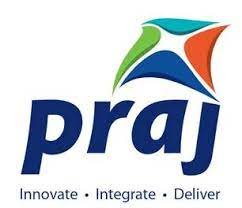“We need to focus on creating value-added products from crop residue”
Shubham Singh, Founder, FUMA Labs interacted with AgroSpectrum to learn more about the potential of agri waste in allied industries. Edited excerpts;
Founded in 2018, Craste purchases crop residues from farmers and recycles them to make packaging materials and engineered boards for furniture. Operating under the company name, FUMA Labs Private Limited, the startup repurposes crop waste into moulded packaging, paper products, packaging and particle boards, helping farmers earn additional revenue. Company has received several grants such as BIRAC SOCH Award, Biotech Ignition Grant (BIRAC), and AB InBev Grant, among others.
The startup is also building packaging solutions using crop residue. It has developed a patent-pending technology, Fumasolv, to extract Lignin from crop residue to develop packaging solutions. The startup operates on the B2B model and sells its boards and packaging materials to businesses. It also works on research and development to create custom-made packaging solutions for its clients. AgroSpectrum interacted with Shubham Singh, Founder, FUMA Labs to learn more about the potential of agri waste in allied industries. Edited experts;
How is FUMA Labs contributing to the use of agri waste in allied industry?
The name of our company Craste itself explains the nature of our work. Craste means crop plus waste which we are using to create business. As we are aware of crop burning, a huge issue in India, many farmers burn the crop residue due to unavailability of affordable and faster options to manage their crop residue. Understanding this issue, we decided to provide affordable options to farmers for crop residue management and mainly add value to the agri-waste. We incentivise the farmers about the value of the farm waste and as a secondary source of income. We buy the agricultural waste from the farmers and recycle them to make packaging materials and engineered boards for furniture. We have recently completed a sustainable and customised packaging solution project for Anheuser-Busch.
Recently the company has completed a pilot project for Beer brand Corona for eco-packaging-six packs made from 100 per cent barley straw. What’s in store for FY 2023?
We help multinational companies achieve sustainability goals. We are working with big companies like Nestle and ITC for sustainable packaging solutions. We are selling pulp made of agri-waste to paper mills and manufacturers of moulded items used in the food packaging industry. Besides this, we provide R&D services for multinational companies. Recently we completed a project for IKEA in which textile waste was provided by IKEA and we made stationary products out of the textile waste using innovative technologies.
Initially we started with providing R&D services then we started conducting pilot scale projects and lastly reached industry scale projects. Now our next venture will be an entry in volumes of sales. We will hit the market with the launch of our manufacturing factory unit at Morena in Madhya Pradesh soon.
We are planning to establish a franchisee model which will be based on a cut-copy and paste system. In this model we will provide end to end support to the farmers having big size farms and Farmer Producer Organisations (FPOs) so that they can start processing of farm -waste at their farm gates and manufacture value added products. We will provide them technology support for smooth functioning and also support them for sales and marketing of the products. This will create good business opportunities in rural areas and also create employment for youth in villages.
We have started discussions with NABARD, FPO’s and government bodies for this project. Currently we are procuring 78 million tonnes of agri-waste from the farmers in Madhya Pradesh, Rajasthan, Karnataka and Maharashtra. Company has developed a network of 20,000 farmers for the supply of farm waste. Thus, we have started building an ecosystem and networking for this project.
What inputs are required to make agri-waste profitable?
Firstly, I think the government is quite proactive about the effective utilisation of agro-waste and supporting new innovations in the agriculture sector. The government is supporting new technologies and R&D in sustainable management of farm waste by providing financial support through its various schemes and grants. Current policies about farm waste management are supportive not only for farmers but also for the agri industry. The government should formulate a plan or scheme for the crop waste management industry. It will help in mitigating the challenges in the supply chain of agri-waste, implementation of technology and funding for new startups. New entrepreneurs should take advantage of government schemes for R&D and funding and create business opportunities from agri-waste.
Secondly, the supply chain of agri-waste utilisation is building up in the market. More and more solutions for utilisation of agri-waste are coming into the market. As a result, the supply chain of agri waste is automatically building up. Many young and modern farmers are stocking up their farm waste and selling it further to the companies.
When agri-waste will get added value, it will definitely boost farmers’ income and also agri industry in the form of new business opportunities. Investment from private players in agri-waste utilisation projects will also contribute in the growth of new startups working in utilisation agri-waste.
To read more click on: https://agrospectrumindia.com/e-magazine.
Shubham Singh, Founder, FUMA Labs interacted with














